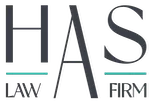- within Technology, Tax and Finance and Banking topic(s)
Over the past few years, the UAE has made significant progress in the field of innovation. The UAE continues to thrive in the technology space both in the private and public sectors. This is reflected in the country's efforts to modernize through the adoption of state-of-the-art solutions to adapt to the broader global wave of digital transformation, data utilization, and technological advancement. It's goals towards a knowledge- based economy and economic diversification are creating new opportunities, and the government has allocated significant resources to achieving the UAE Artificial Intelligence (AI) Vision 2031 which aims to position the UAE as a global leader in artificial intelligence by 2031, and to integrate artificial intelligence in vital areas such as education, government services and the community wellbeing.
What is a software?
The key sectors of AI include machine learning, computer vision and natural language processing (NLP) which uses software to achieve their objectives. Whilst the Copyright Law is silent on the definition of ‘Software', the US Copyright Act defines software as “a set of instructions, data or programs used to operate computers and execute specific tasks.” The two main categories of software include application software which completes a specific need or perform tasks and the system software which provides a platform for applications to run.
The preservation of the original work of authorship is critical for the protection of the rights of the original writers, and this includes software codes, software applications, programs, and databases. Any person who writes such software or whose name is mentioned in the publication and attributing such person as the creator is called an author.
What is the Copyright Law?
The UAE has issued a variety of new legislations with a focus on intellectual property. More specifically, they have implemented the following laws:
- Federal Decree-Law No. 38/2021 on Copyrights and Neighboring Rights (the “Copyright Law”) which came into force in January 2022 and replaced Federal Law No. 7 of 2002 (the “Old Law”).
- Federal Decree-Law No. 36/2021 on Trademarks (the “Trademarks Law”); and
- Federal Decree-Law No. 11/2021 on the Regulation and Protection of Industrial Property Rights (the “Patents Law”)
The Copyright Law protects works such as “Smart applications, computer program and applications, databases, and similar works determined by a decision of the Minister.” The licensing of smart applications, computer programs and applications are subjected to the licensing agreement attached to the program pursuant to Article 12 of the Copyright Law. Unlike the Old Law, Article 28 of the Copyright Law gives businesses and employers stronger set of rights in terms of ownership of the works as the employer will be the default owner when the works were created by an employee during the period of their employment, using the employer's resources. This particularly affects software engineers and developers who work for technology companies. Additionally, the Copyright Law allows the creator to “conclude a contract” in respect of future assignment of works as per Article 15(2). The Law also provides a protection period of the author's economic rights throughout his lifetime and for a period of (50) fifty years thereafter commencing on the first day of the calendar year following the year of his death. Lastly, pursuant to Article 39 of the new law, the potential fines for copyright infringement have increased from a maximum of AED 50,000 to AED 100,000. The increased penalty was particularly introduced for breaches related to downloading computer programs without a license or permission.
The Federal National Council in line with the vision of the leadership of the UAE is working to ensure the effective protection of copyright holders to preserve the innovative ideas and the production of software by authors. The Copyright Law protects authors' economic rights from infringements across the UAE. Furthermore, the features introduced by UAE Laws are an excellent starting point for the protection of the software industry in the region, not just in the UAE but also other Gulf countries. However, it is critical to emphasize that the implementation of the laws must be consistent with practice, beginning with the registration of the authors' rights.
What is Patent Law?
A wide range of software innovators are relying on IP rights protection as a critical component of their business strategies, including producers of both patented and open-source software, as well as companies or individual programmers. The specific models of legal protection available vary from country to country.
The Patent Law grants protection for new inventions which can be products, processes or designs and provides a mechanism for protection of the invention. However, there is no reference to software patenting under the Patent Law like other jurisdictions. A software patent protects a software product, such as a computer program, libraries, user interface, or algorithm. A patent is a collection of exclusive rights issued by a government to a patent holder for a set amount of time during which no one may produce, use or sell the claimed invention without the permission of the patent holder.
Article 5 of the Patent Law states that “a patent shall be granted for each new invention” which means that the invention must have an inventive step which is not obvious to the ordinary person skilled in the art. Furthermore, the law requires that the invention must not be disclosed to the public before the filing for patent. However, Article 5 of the Patent Law does allow for a grace period of 12 months meaning any disclosures occurring within 12 months of the filing date will have no effect on novelty. Despite the protection granted by the Patent Law for inventions, it must be noted that Article 7 of the Patent Law explicitly excludes software from patentability as software is generally non-patentable in most-jurisdictions and the Law provides no further guidance on exceptions to the software exclusion.
This can be contrasted with the position of software patents in Europe, the United Kingdom (“UK”) and the United States of America (“USA”). According to UK and European patent law, it is not possible to patent software unless it provides a new “technical solution” to a “technical problem”. The word “technical” is not explicitly defined in either UK or European patent statutes, but case law provides that computer software which implements methods for controlling an industrial process or methods of processing physical data can be considered “technical” unlike software which only processes data internal to a computer. Again, if that processing results in a faster or more reliable computer then it may be considered technical and patentable.
Previously, US Patent Law extended patent rights to a wide range of inventions. However, in recent years, the USA has shifted significantly towards the European approach and patents granted to software inventions has shrunk. The US Patent and Trademark Office has set out a three-part test to determine the eligibility of a patent: whether the claimed invention is a machine, process or manufacture; whether the claimed invention is directed to an abstract idea and whether the combination of the elements in the claim amounts to more than an abstract idea. Therefore, if an invention is not more than just an abstract idea, it is not patent eligible. However, more guidance is required to understand the criteria for patent eligibility in the USA.
Conclusion:
It is crucial that the UAE regulatory framework is strengthened to keep up with the acceleration of software innovation. The UAE still does not have an independent authority for the registration of IPRs. However, in terms of time and fees, UAE is one of the most cost-effective countries for IP Registration. Therefore, as the technological and industrial revolution evolves, the software developer's intellectual property needs to be properly registered and protected through copyright laws or patents.
The content of this article is intended to provide a general guide to the subject matter. Specialist advice should be sought about your specific circumstances.
[View Source]

